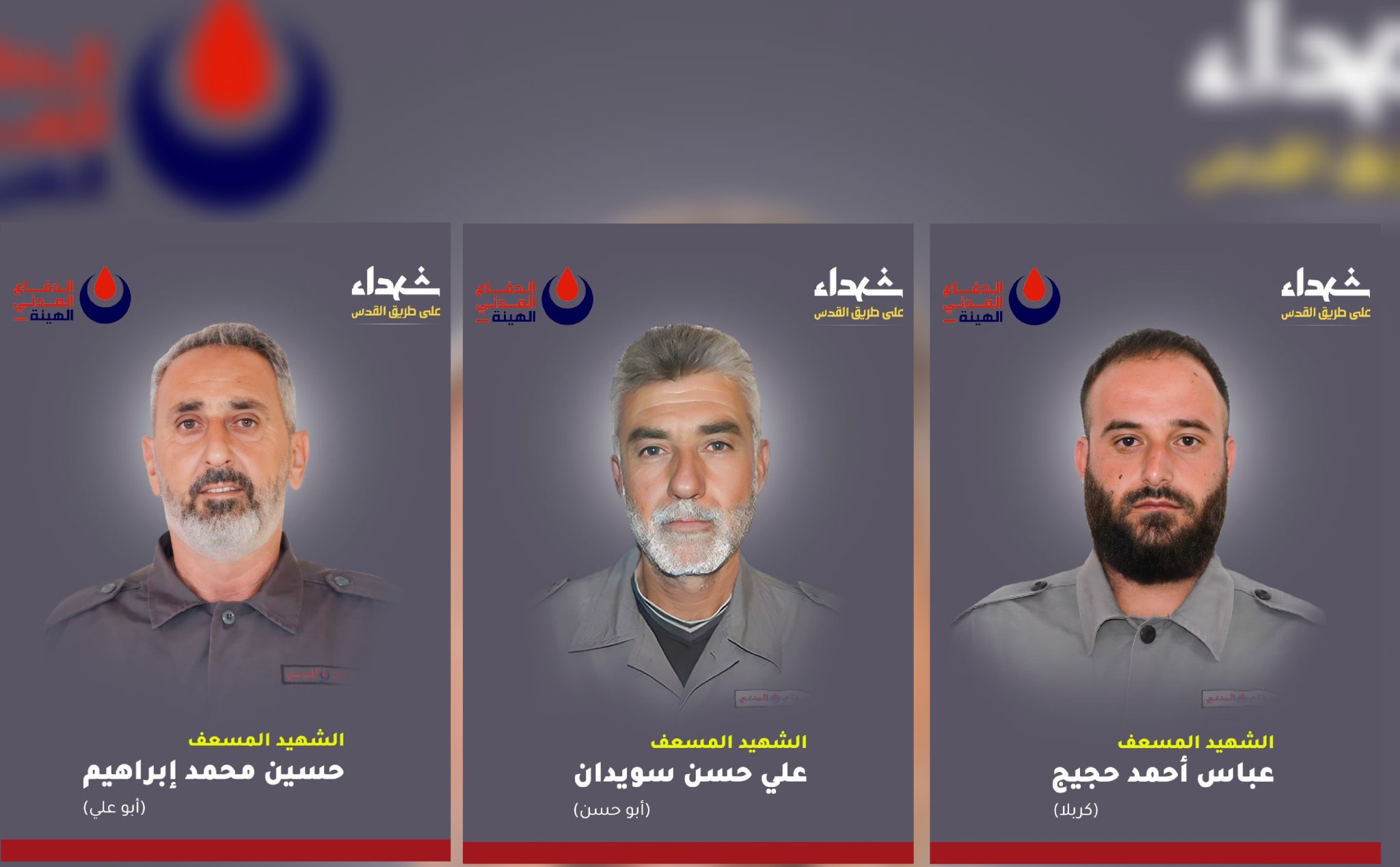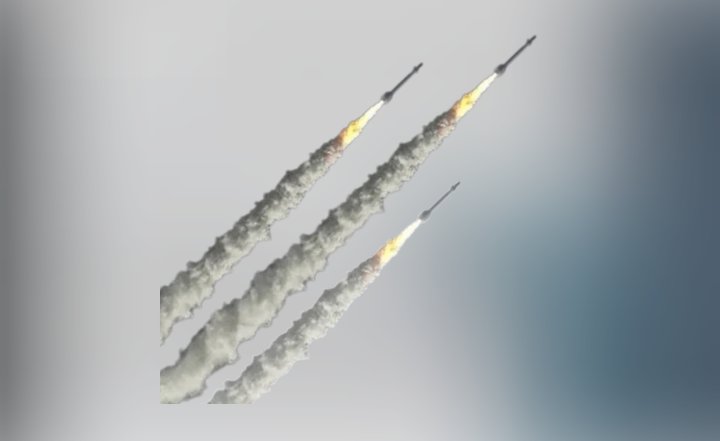DR. MAI ABDUL RAHMAN

Abouna Touk’s volunteers making tabouleh to serve Muslim and Christian port blast survivors in Beirut’s Karantina neighborhood. (PHOTO COURTESY M. ABDUL RAHMAN)
Washington Report on Middle East Affairs, March/April 2021, p. 43
Special Report
By Dr. Mai Abdul Rahman
LEBANON IS DEAR TO ME. It is where I attended twelve years of boarding school as well as the birthplace of my favorite teacher and second mother. Amal Ksaifi was a devout Maronite Christian. She took me to midnight mass and also made sure I kept my fast during the month of Ramadan. She was effortlessly kind and generously loving. Last year, Amal died in Boston, and in her loving memory, I decided to dedicate 15 days of service to the people of Lebanon.
Five months into the COVID-19 pandemic and during a Lebanese national financial crisis that predates the pandemic, an enormous explosion shook the Beirut capital on Aug. 4, killing more than 200 individuals, injuring another 6,500 and displacing 300,000 residents. The intensity of the blast left the country’s main port and surrounding area in ruins. It was felt and heard hundreds of miles away on the island of Cyprus.
Immediately after the explosion, volunteers from all over the world flocked to Beirut to rebuild and renovate its shattered homes and shops. And so did I.

Dec. 13 was my first day preparing food for the victims of the blast. Karantina is a mixed-use residential and commercial neighborhood in northeastern Beirut, just east of the port where the blast took place. I worked 500 feet from the epicenter of that blast in a makeshift kitchen that was set up by a Christian Maronite priest.
Abouna (Father) Hani Touk travels 22 miles from Jbail (Byblos) to Beirut five days a week to feed the families that were displaced by the explosion, as well as the foreign and local volunteers renovating Karantina’s destroyed homes and shops. With the help of a small group of volunteers, Abouna Touk prepares and cooks 620 meals to serve Karantina’s Muslim and Christian survivors of the recent blast and Lebanon’s cruel civil war.
During the Lebanese civil war, the Karantina neighborhood witnessed several massacres. Historically, it is where the central offices of the right-wing Christian Maronite Kataeb Party (Phalange) is located, one of several armed militias that terrorized Karantina’s Muslim community. So while it is not surprising that some of the volunteers working at Father Touk’s makeshift kitchen either took part or were victims of Lebanon’s sectarian civil war, it is most surprising to find the people who feared and avoided one another casually meeting face to face to ease the hardships they share.
But that took deliberate effort. According to Father Touk, it took him two weeks to convince his local volunteers to agree to serve Karantina’s Muslims. They no longer need convincing. Five days a week, they stand shoulder to shoulder to plate and serve their former enemies.
It is not that sectarianism is dead in Lebanon—it still exists. However, there are some encouraging signs. During the Christmas season, a choral festival at Mar Mikhael Maronite Church featured Muslim and Christian singers.
Apha Association, an NGO led by Father Azar, a Maronite priest, is raising money to build trust and friendship among the Christian and Muslim youth of Burj al-Barajneh while reconnecting with the natural environment. Burj al-Barajneh is a southern suburb where both Shia and Sunni Muslim Lebanese live, along with Maronite Christians and Syrian, Iraqi and Kurdish refugee populations, many of them living in and around the local Palestinian refugee camp. While the Maronite efforts are small and limited in scope, they are promising.
For Lebanon to heal, Muslim and Christian leaders must be deliberate in creating spaces across Lebanon to erase the sting of past tragic massacres and wars. It is in the interest of all Lebanese to strategically and purposefully create opportunities for people of different faiths to work together. This could erase hatred of “the other” and usher in the rebuilding of a forward-looking Lebanon that serves the interests of all its people. It won’t be easy to forget the deep wounds of past conflicts, but it is possible for the Lebanese people to begin trusting one another. The fate of the country depends on leaders like Abouna Touk and people of every faith working together.
Dr. Mai Abdul Rahman, founder of the American Palestinian Women’s Association (APWA), is an Emergency Medical Technician volunteer at Riverdale Heights Volunteer Fire Department (Engine 13).



